- Home
- Helen Forrester
Three Women of Liverpool Page 2
Three Women of Liverpool Read online
Page 2
“We have a lot of volunteers on the staff, but occasionally they don’t turn up,” she explained to Emmie. “Then we have to manage somehow, so we have four full-time paid people, two for each shift.”
Emmie smiled and said she could cook, too. Mrs Robinson looked at the marvellous reference from the Honourable Mrs Forster-Harrington – and increased the wage offered by five shillings a week.
At seven the next morning Emmie was given a white overall and the prettiest flowered apron she had ever worn, and was sent across a small back yard to scrub two very dirty lavatories.
The yard was cobbled and was obviously much older than the buildings surrounding it; it had been adapted as a light well and was lined overhead with office windows. Little of the spring sunshine penetrated it; only a small square patch of sky far above hinted at the beauty of the day.
With her long, straight nose wrinkled in disgust, Emmie used up four pails of hot water and a whole bottle of pine disinfectant and, to the relief of the other members of the staff who had to use the ancient thrones, as well as the seamen, she had left them cleaner than they had been for half a century.
When she returned to the canteen itself, she saw that the front door was hospitably open, though round the entrance stood a wall of sandbags to protect it from blast. The two big windows facing the street had been pushed up; their panes had been criss-crossed with black tape, to minimise the danger of flying glass, and on either side big, old-fashioned shutters, their hinges well oiled, hung ready to be folded across the windows at night.
Two volunteers were wiping down the tables and chairs. They were both dressed in matching sweaters and cardigans, one in pink, the other in green. Over their tweed skirts they had tied flowered aprons similar to Emmie’s. One had a string of pearls round her neck, the other a gold chain with a cross hanging from it. Though they were about the same age as Emmie, Emmie thought she had never seen two more beautiful young ladies. They greeted her cheerfully and asked her name; she did not dare to ask them their names.
Bringing with her a strong smell of sausages grilling, Mrs Robinson rushed in from the kitchen carrying a pile of clean ashtrays. “Put one of these on each table, Emmie,” she ordered briskly.
“It’s funny-peculiar how small things change your life,” Emmie remarked to Mari later on. “All the happiness I’ve got came because I had to put an ashtray on a certain table. Proper queer, when you think on it.”
As Emmie put down the last ashtray, two men, anxious for a late breakfast, swung themselves into chairs at the table. Both wore navy-blue turtleneck sweaters and shabby jackets over them. They grinned up at Emmie.
“Mornin’, duck. What you got for brekkie?” The speaker must have been in his sixties, judging by his almost bald head fringed by tightly clipped white hair. Black eyes, like a friendly magpie’s, surveyed her.
Emmie blushed slightly. “I don’t know. I can smell sausages.”
The other man was younger, fair-haired, with a full moustache tinged orange by tobacco smoke. He laughed, and Emmie’s blush grew redder, because she felt she had given a stupid answer. Her fingers fidgeted with a corner of her flowered apron. After a second, he said to his companion, “It doesn’t matter what it is, Dickie. I’m that hungry, I could eat an elephant. Had to wait hours at the bloody hospital, in spite o’being so early.”
“Aye. Bring two plates of whatever’s cooking,” agreed his companion, taking a well-charred pipe out of his pocket and then opening up an oilskin tobacco pouch from another pocket.
Emmie flashed them a shy smile and fled to the kitchen. She reported anxiously to Mrs Robinson.
Mrs Robinson paused, a half-open packet of dried eggs in her hand. Then she chuckled. “Here, take a pencil and notebook from over there, and ask them whether they want tea or coffee, bread or toast, and would they like porridge to start with.”
Flustered, Emmie snatched up the notebook, while Mrs Robinson called after her, “We’ve got scrambled eggs, sausages and baked beans.”
Emmie waited, pencil poised, until the men looked up from their conversation. Behind her, other men rolled in with the typical sailor’s gait, each man’s head bent slightly forward, chin tucked in, from years of living in boats’ confining spaces, where heads could be easily bumped. Coughing, hawking, talking, they scraped chairs back from the tables, while the volunteers advanced purposefully, notebooks in hand.
The man with the moustache watched her curiously, as she took his friend’s order; when she turned to him she found herself facing rich blue eyes, narrowed as though used to staring into sunlight. The face was weatherbeaten, lined and filled with strain. He smiled at her and she lowered her eyes modestly, as she wrote the order down. Her mother had been warning her since the First World War about being forward with men. Not that she need have worried, thought Emmie. When you’re keeping house you live in a daytime world of women, children and very old men. Even the tiny shops she had patronised had been largely run by women, and her parents had never allowed her to go out at night; when she had once or twice protested at this, her father had, in a tremendous rage, shouted her down, threatened her with his stick and told her that it was bad enough that they were left alone in the mornings while she was with Mrs Forster-Harrington and went for the groceries. Many of her neighbours were equally tied to their homes, she knew, by a horde of children, the sick or the old, and by sheer lack of a penny of their own. She submitted.
This morning, she was being rapidly surrounded by an ever increasing crowd of lively, talkative men. It felt very strange, nervously exciting.
“Tea or coffee?” she inquired of her younger customer, forcing herself to look at him. He grinned, a slow, friendly smile, which made all the sun wrinkles on his face stand out. Her heart gave an uncomfortable bounce. “Tea,” he replied, and then asked, “You new here?”
“Yes,” she said shyly, smiled briefly and hurried back to the safety of the kitchen. A whole lot of questions about men tumbled into her mind. Here, this very morning, she was going to meet more men than she believed she had met in the whole of her desperately narrow existence, and she really knew very little about them.
When she was a young girl and her mother was still able to move around the house a little, she had not dreamed of being tied to her parents for the rest of her life. She had hoped for a handsome sweetheart in soldier’s uniform, with fine legs bound up in puttees; but her parents had kept her rigidly reined in and, very soon afterwards, the horrible battles of the First World War had taken nearly all the young men of the district, and hardly any of them returned. “Round us, there must have been three girls to every man,” she guessed, as through the day she trotted patiently backwards and forwards to the tables; and once she suddenly felt sick, as she realised that the same thing was going to happen to the young girls now hoping for a husband. The young lads were again going out to die. And for what? How many men in this very room would be alive twelve months hence?
The man with the moustache came again the next morning, this time for a cup of coffee and a bun. He sat at the same table. Dickie was not with him.
Emmie snatched her notebook out of her apron pocket and scuttled across the crowded room to take his order, afraid that one of the volunteers would get there first.
“Mornin’,” she greeted him shyly, wondering what had brought her to him at a run. He was sitting with his elbows on the small round table, chin resting on clasped hands. At her voice, he glanced up quickly and smiled. Despite the smile, he looked drawn and very tired.
“We got a bit o’ bacon,” she whispered conspiratorialy. “Would you like some?”
He had already had breakfast with his parents, out at Hoylake, but he was delighted to be specially favoured. “Ah would,” he said, the smile broadening into a grin.
When he took his cup of coffee from her instead of allowing her to lay it on the table, she noticed that his hand was not too steady. The cup wobbled in the ill-fitting saucer and then tipped over. He was deluged in coffee.
She whipped a tea towel from the belt of her apron and gave it to him to wipe himself down, while they had a rueful laugh together. “Lucky your trousers is navy blue,” she told him. “Stain won’t show.”
When she brought his bill, he asked her rather diffidently if she would like to go to the cinema with him the following night.
Gwen was scandalized. “At your age!” she exclaimed. “Lettin’ yourself be picked up.”
Mari had giggled, and said, “It’s exciting for her, Mam.” Her mother’s look was sufficient to freeze her into silence and, with tight lips, the 13-year-old again bent her head over her knitting.
Shaken by a series of emotions she had never expected to be able to give range to, Emmie had turned appealingly to David.
“I’m free now,” she said to him, a little break in her voice. “I’m goin’ to enjoy meself as much as I can.”
David folded his newspaper up carefully. “And so you should,” he said, regardless of his wife’s grim disapproval. “Be careful who you’re with, that’s all.”
“He’s a real nice fella,” responded Emmie, looking defiantly at Gwen. Inwardly, she wondered what kind of a man she had drawn out of the pack. He was certainly nothing like her father. She was trembling with nervous anticipation, as, after tea, she washed her face and did her hair. Instead of her usual bun, she rolled her long hair over a shoelace tied round her head and the result was a smooth, neat roll which framed her face; she had got the idea from a women’s magazine which Gwen subscribed to. As she tucked in a few precious hairpins to make sure the roll did not slip, she wondered frantically if he were married.
Now, homeward bound on the clanging tram, she reflected fondly on the memory of that first date. There had not been an air raid and they had laughed together as they stumbled round in the blacked out city. He had insisted on bringing her all the way home to her brother’s house and he had actually kissed her before leaving her. With joy mixed with fear for his safety, she once more felt under her glove the small garnet-and-pearl ring which a couple of weeks back he had given her.
He had produced it shyly and had confessed when he had slipped it on to her finger, “I never thought much about getting married before – always seemed to be too much to do, fishing with me father. Prices was so bad we never made much – not enough for me to keep a wife as well. Being Methodists, me and me brothers didn’t drink and we didn’t dance, so we didn’t meet too many womenfolk – a few neighbouring girls – but never anyone like you, Emmie. You’re beautiful and I want you so bad.”
They had lain in the damp April grass, amid the Meols sand-dunes, not too far from his home. Great rolls of barbed wire stretched along the beach, to protect it from possible invasion. The Home Guard, keeping their nightly watch, had left them undisturbed. Rumour had it that both the beach and the dunes were mined, but they forgot everything in their need for each other. While the sound of the waves rolling softly up the shore, and a silent sea mist drifting inland, cut them off for a little while from a world in torment, two gentle, deprived people found an ecstasy granted to few.
They lay for a long time in each other’s arms, until Emmie giggled suddenly.
“I was thinkin’. Supposing I have a baby! It could happen, even at my age.”
Robert had lifted his head and kissed her again. “Not to worry. It’ll have a proper father. I wouldn’t let you down, luv.” He held her tightly, and then said, “If anything should happen to me before we can be married, and you’re in trouble, go to me mam and dad. They’ll take care of you.”
“Oh, Robbie,” she whispered with a sigh. “You have to come back safe.”
“I’ll do me best,” he said, with a forced laugh. “But don’t you forget. Me dad’s earning enough now to keep you for a while.”
She lay quiet for a moment, and then she said in a puzzled voice, “It’s funny that it’s taken a war to give us decent wages, isn’t it?” She rolled over him until she was lying on top of him, her head on his shoulder, and then she sighed. “But I’d rather manage on poor wages and know you was safe.” She felt him stir under her again and scrambled hastily to her feet. “Enough, luv, enough. I got to go to work on the morning. And you got to have the hospital check your feet again. The cold and wet you suffered on that raft must’ve been proper awful.” She dusted down her skirt and buttoned up her blouse, looking down at him impishly. “But, you know, I wish your feet were still just a bit bad, so as we could have more time together before you have to go to sea again.”
He had swung himself to his feet and caught her in his arms and kissed her long and hard. “Aye, luv, I don’t want to go either.”
Another time, while they sat on a bench underneath a chestnut tree in Sefton Park, she had told him about her life with her parents. He had marvelled at her patience and endurance. She had shrugged her shoulders and said, “I only did what a lot of single daughters have to do – who else will look after people like that? Couldn’t let them go into the workhouse. We could just manage if we all three lived together. But there wasn’t nothin’ left over for going to the pictures or suchlike, even if I’d had the time. We was lucky to have a low rent and something to eat each day. We’d have fair frozen to death some winters, if David hadn’t bought some coal.”
“It’ll be easier from now on, luv,” he had promised her. And she had felt indeed that a new life was unfurling for her as surely as the tiny leaves sprouting on the chestnut tree.
“Rialto Cinema,” shouted the clippie, and Emmie came sharply back to the present.
iv
Gwen Thomas always averred that her life was never the same again after that young scoundrel, Patrick Donnelly from next door, had at dinnertime on Wednesday shot an arrow through the back bedroom window of their small row house.
“There was broken glass all over our Mari’s bedspread. Ruined, it was,” she complained angrily to Emmie and to her husband, David.
She was sick to death of her new, Irish next-door neighbours. A pack of sloths, she fumed. She had nearly choked when the 13-year-old boy had calmly knocked at her back door and had asked for his arrow back.
A small bundle of outrage, thin lips drawn back over blackened broken teeth, she had hissed back, “Arrow? You ain’t gettin’ no arrow from me, young man. You’re goin’ to get a bill for seven bob for puttin’ t’glass back, and I hope your dad gives you a good beatin’.”
Large, calculating blue eyes, fringed with long black eyelashes, looked calmly back at her. “It were an accident, Mrs Thomas – and you could say it were blown out in the last air raid and get it mended easy.” He grinned at her beguilingly, a grin that usually worked wonders with middle-aged lady teachers.
It did not work on Gwen Thomas. She wanted to strike him with the broom she was holding; but he was as tall as she was and heavily built for his age. She felt uneasily that he might hit her back. She shook a bony finger at him.
“And what good would that do me, beyond makin’ a liar of meself?”
“T’ city might do it for free.”
She slammed the door in his face.
Bow in hand, he stood staring at the cracked black paint on the back door. All that fuss about a window, when any night the Jerries raided Liverpool hundreds of windows got broken. Old bitch.
On the way out of the tiny brick-lined yard, he gave the cages holding David Thomas’s racing pigeons an angry shake. The pigeons fluttered madly round and round their prison in alarm. Next time he shot at a cat, he reckoned crossly, he should take a look at what else was in the line of flight. As his father often said, you live and learn.
“Patrick! Patrick! Coom ’ere. I want yer to go a message, afore you go back to school,” he could hear his mother shouting from their kitchen. “Coom ’ere, afore I come after yez. Where are you?”
He dropped his bow into a corner behind the lavatory in the yard and slunk uneasily into the kitchen.
In her living room, Gwen sank on to the sofa, leaned back and flung a skinny arm across h
er chest. “He’s started me palpitations, he has. Mari, luv, pour me another cuppa tea and bring the aspirin bottle.”
Mari was just putting on her school blazer, preparatory to returning to school, but she obediently ran upstairs to her mother’s bedroom to get the aspirin bottle and, on her return, poured a cup of tea from the aluminium teapot keeping warm on the hob in front of the fire.
“I don’t suppose he meant to break the window, Mam,” she pleaded, turning a thin, well-scrubbed face towards her mother who was lying back with her eyes closed.
Gwen ignored her plea. She shook a couple of aspirins out of the bottle, popped them into her mouth and swallowed them down with a gulp of tea. “Mind you come straight home,” she told her daughter, without opening her eye. The girl slowly buttoned her blazer and, with a sour grimace towards her mother, she left for school. Palpitations! How come every time her mother fell into a fit of rage, it was called palpitations, and when she, Mari, was angry, it was called a sinful paddywack.
As she kicked a stone down the road towards school – her mother hated her to do anything so vulgar – she ruminated on the subject of Patrick. Though she was scared of him, she found him a fascinating subject for thought. Her school friends thought he was the handsomest boy in the neighbourhood and he was so excitingly wild – and a wicked Catholic, too. Only last week, at the end of the street, he had fought off three Protestant boys and left them all with bleeding noses. Cock of the walk, he was, thought Mari a trifle wistfully. But her mother’s warnings about men had been drummed into her ever since she could stand, and while the other girls, Protestant and Catholic alike, giggled hopefully whenever they passed him, she held back and passed with eyes cast down, her satchel carried neatly on her back, to cover her long black plait so that boys could not pull it.

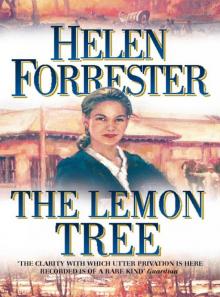 The Lemon Tree
The Lemon Tree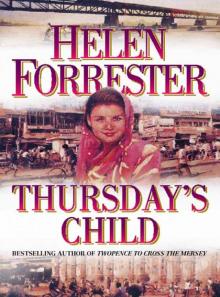 Thursday's Child
Thursday's Child Yes, Mama
Yes, Mama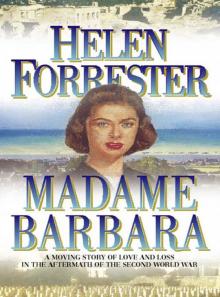 Madame Barbara
Madame Barbara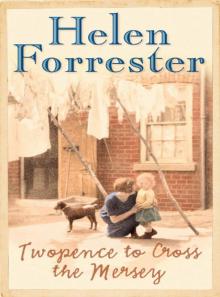 Twopence to Cross the Mersey
Twopence to Cross the Mersey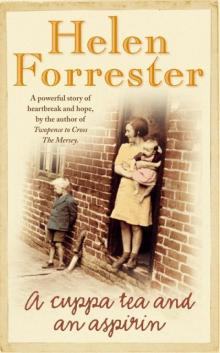 A Cuppa Tea and an Aspirin
A Cuppa Tea and an Aspirin The Moneylenders of Shahpur
The Moneylenders of Shahpur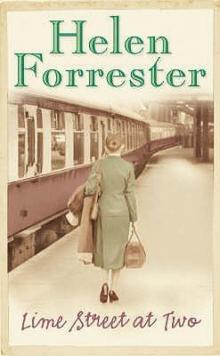 Lime Street at Two
Lime Street at Two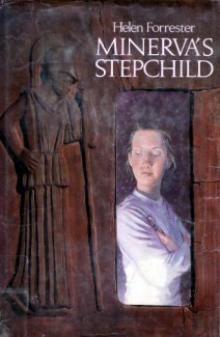 Minerva's Stepchild
Minerva's Stepchild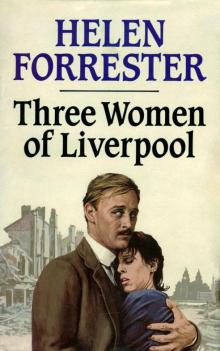 Three Women of Liverpool
Three Women of Liverpool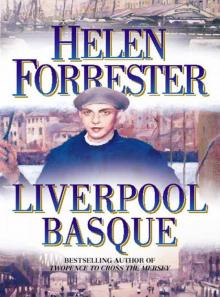 The Liverpool Basque
The Liverpool Basque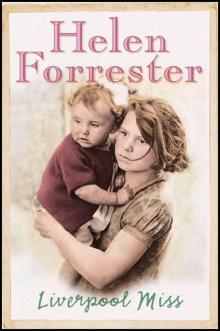 Liverpool Miss
Liverpool Miss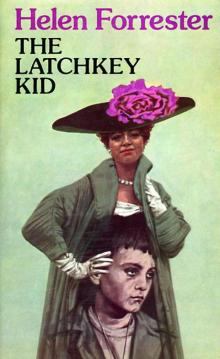 The Latchkey Kid
The Latchkey Kid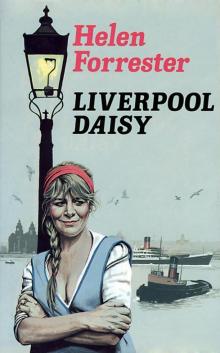 Liverpool Daisy
Liverpool Daisy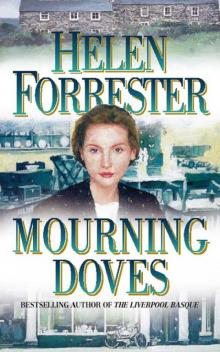 Mourning Doves
Mourning Doves